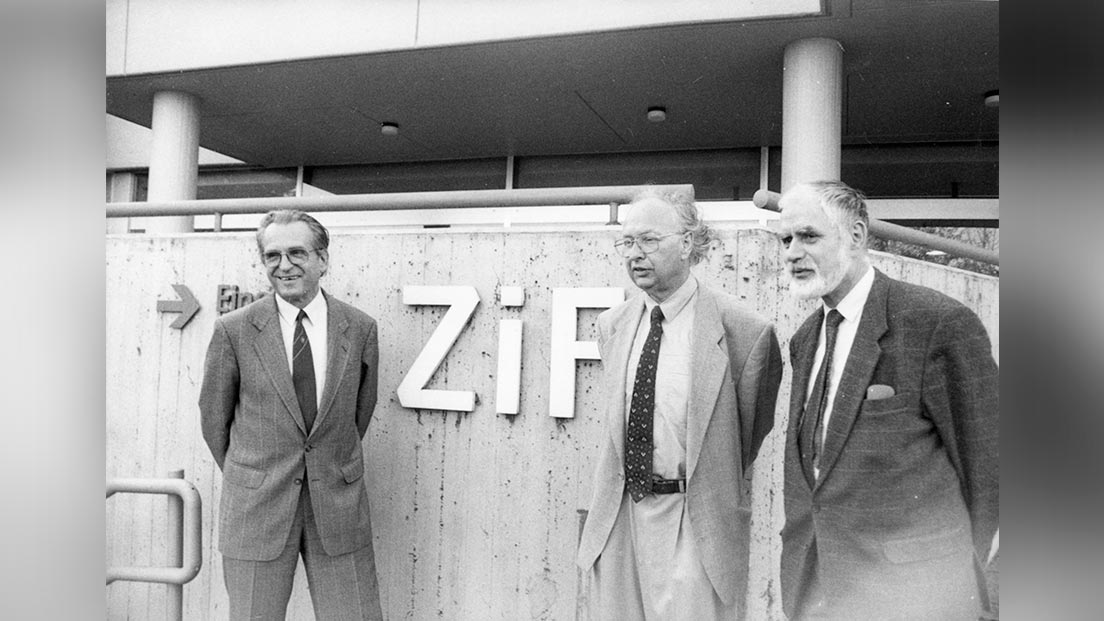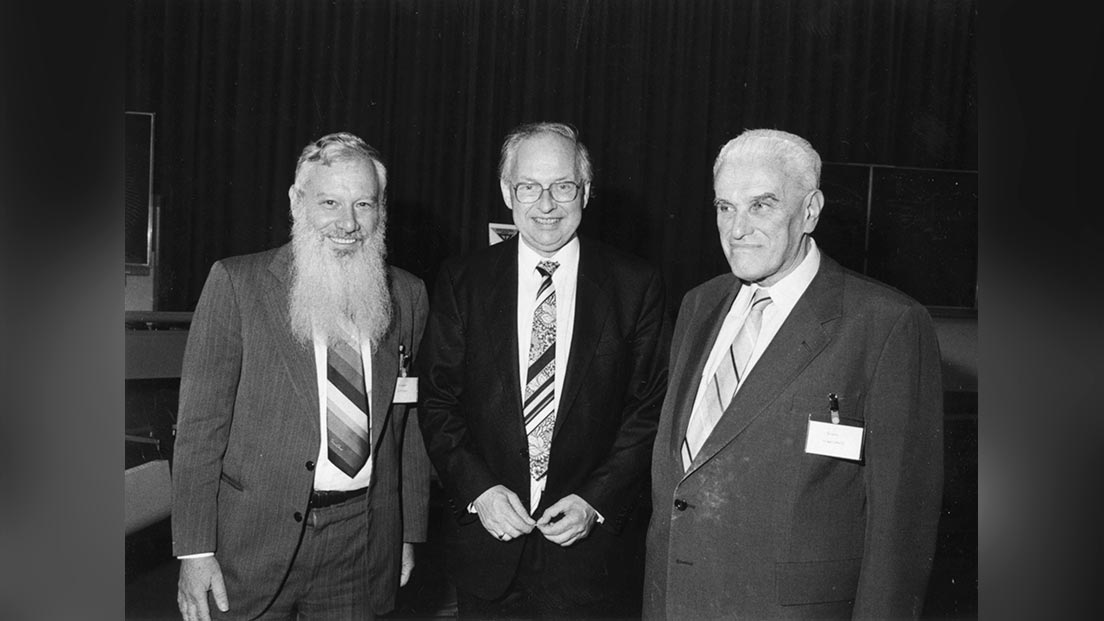
–
Photo: Klaus Halbe
Source: Universitätsarchiv Bielefeld, FOS 01855
Reinhard Selten moved from the Free University of Berlin to Bielefeld in 1972 because he was attracted by the prospect of setting up the Center of Mathematical Economics (IMW) as a major institution. After his ambitious plans fell victim to the pressure to cut costs, the institute was scaled down. However, the smaller size favoured Selten in a different way, as he was able to ensure that all three chairs of the institute would be filled with game theorists. In his biographical notes for the Nobel Prize, Selten describes his time in Bielefeld as follows: “At Bielefeld University, the existence of a unique institution, the Centre for Interdisciplinary Research, facilitates cross-fertilisation between different fields. The lectures there brought me into contact with biologists who drew my attention to applications of game theory in biology.”
–
Quelle: 3Sat, 2014.
Interdisciplinary work on game theory
After his move to the University of Bonn, Selten maintained his ties to Bielefeld, which included being a member of the Scientific Advisory Board of the ZiF until 2015. In 1987, he returned to the ZiF for the research group on game theory in behavioural science, in which another later Nobel Prize winner, Elinor Ostrom, also participated. The aim of the research group was to combine game-theoretical research in many different fields. The cooperation of the international group of participants from the disciplines of economics, biology, mathematics, political science, psychology and philosophy finally led, in addition to three conferences, to four volumes on “Game Equilibrium Models”. These were published in 1991 and had a significant impact, as Selten describes: “John Harsanyi, John Nash and I, we are responsible for the non-cooperative revolution in game theory. The year spent at the ZiF made a significant contribution to this and to the development and dissemination of game theory and its application to the various disciplines.”
–
Photo: unknown
Source: Universitätsarchiv Bielefeld, FOS 01858

